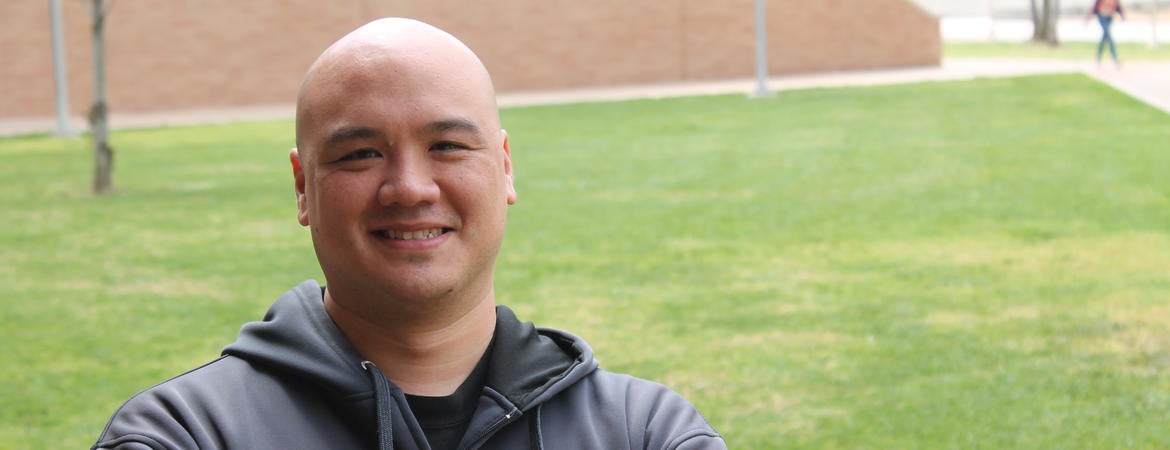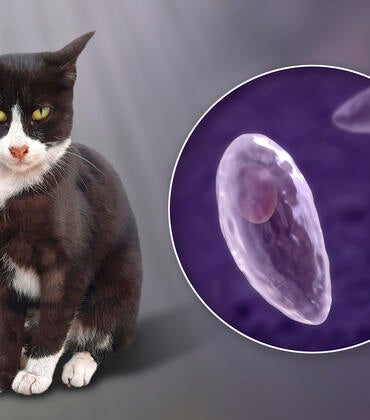
What makes veterans feel they can't connect with society?
That’s a question David Lane is trying to answer through interdisciplinary research. Lane, 34, is a U.S. Army veteran and current graduate student with the School of Public Policy at the University of California, Riverside.
His initial work and personal conversations with other veterans indicate what he understands to be true: veterans want to share their war experiences, want to discuss feelings and speak up, but that counters what the military has conditioned them to do. Breaking that regimented way of thinking — or the mere thought of betraying comrades — is one of the greater challenges, Lane said, a third-generation serviceman.
As part of his work, Lane is helping promote the Veteran Health Symposium scheduled for Friday, April 5, at UCR’s Pentland Hills residence hall. The event is a cross collaboration with various campus partners and led by the UCR School of Medicine, UCR School of Public Policy, and the UCR Blum Initiative on Global and Regional Poverty. It is free and open to the community.
“I don’t want to speak for all the veterans,” said Lane said, one of 274 current student veterans at UCR. He completed his undergraduate degree at UCR in 2014. “I can speak for myself and for my friends. We want to share our stories. Maybe we could start by letting veterans know there is no stigma attached to mental health, and we should look for outlets that allow them to express themselves, such as writing, painting, or performing in plays.”
Lane, who was deployed in Afghanistan, joined two senior researchers: Cassidy Lee with the School of Public Policy and Frances Tao with the School of Medicine. Lee and Tao have been compiling stories, interviews, and data on deported veterans. The team has identified 300 deported veterans, many who have received services through Deported Veterans Support House in Tijuana, Mexico. Some of these veterans will share their stories via photographic narratives during the Veteran Health Symposium on April 5.
Meeting more veterans and working with senior researchers, along with receiving support from the Blum Initiative on Global and Regional Poverty, Lane is quickly learning that the structure, discipline, teamwork, and profound sense of purpose veterans had in the military, make it difficult to transition into civilian life where those structures only loosely exist.
Lane served as a Chinese-English translator during his five years in the U.S. Army. While he completes his graduate studies, Lane intends to also focus on researching mental health and female veterans’ experiences in the military.
“Graduate school is really where I’ve developed this drive and determination to conduct research,” Lane said. “Working with two senior researchers, in addition to learning the methodology, has allowed me to take this seriously and apply myself 1,000%.”



